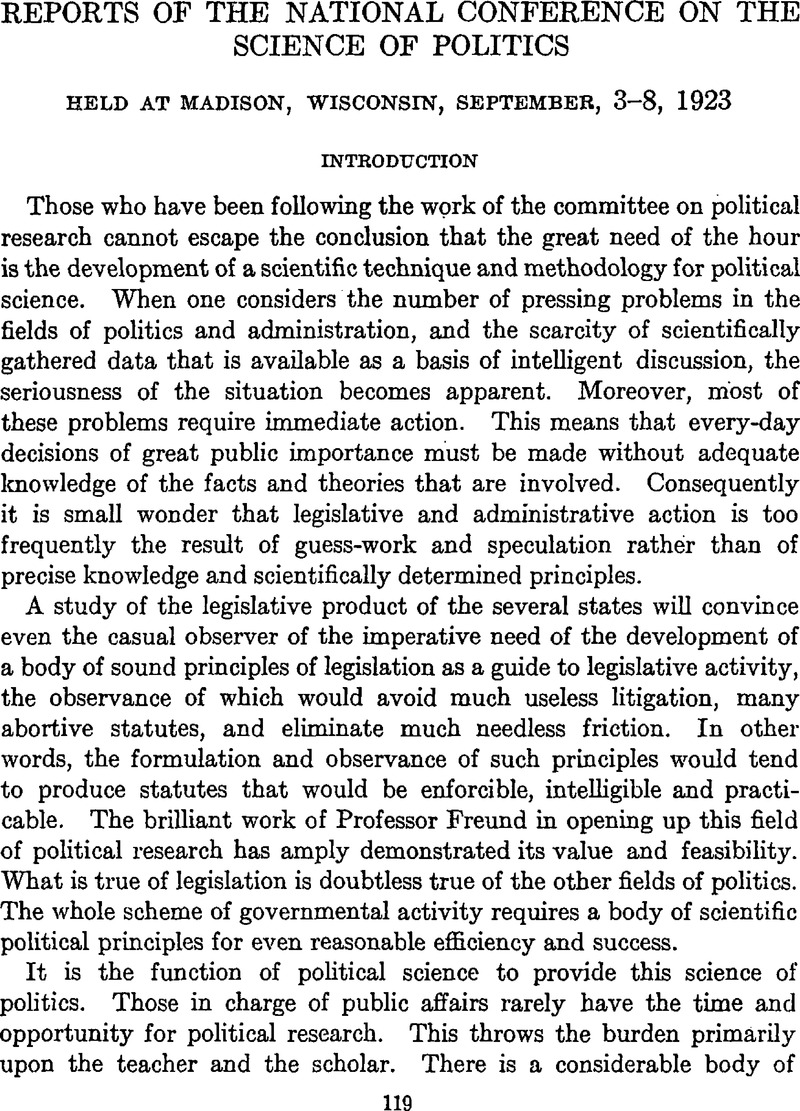No CrossRef data available.
Published online by Cambridge University Press: 01 August 2014

1 Of unique value in this part of the inquiry, for the early history of the court, is Warren's, CharlesThe Supreme Court in United States History, 3 vols., Little, Brown & Co., 1922.Google Scholar The work brings together from a wide range of sources the comment and criticism that were visited upon the court's principal decisions in the field of constitutional law between the period of its founding and the close of Waite's chief-justiceship. The work needs to be supplemented by an additional volume performing the same service for recent years, during which organized labor has become increasingly suspicious of the court.
2 It would appear that down to the framing of the Ohio Constitution of 1912, which requires a vote of six of the seven justices of the state supreme court in order to retire a statute on the ground of unconstitutionality, the verdict of the state constitutions was consistently in favor of judicial review, since none of them disapprove or limit the practice and almost all of them incorporate provisions which, like the “due process of law” clause, because of their vagueness, furnish basis for the great majority of the cases.
3 In the case of the Dominion of Canada and of the Commonwealth of Australia we have federal systems in which judicial review is employed, though less frequently than in the United States. The comparative study of the institution in these commonwealths may, therefore, be extended in some instances to particular doctrines of constitutional law.
4 There is evidence to show that the possession of the power of judicial review has had a distinct effect on the tenure of judges in the states. Thus far, however, the comparative difficulty of amending the Constitution of the United States has fended off such an outcome in the national government.
5 Each branch of this inquiry should be prosecuted with the fact in mind that judicial review is not something static, but has been from the first an expanding institution. Thus, the effect of judicial review upon itself should be considered.
6 The court's own views as to its ability to take “judicial cognizance” of facts in constitutional cases exhibit some diversity, an illustration being afforded by a comparison of its decision in the recent Minimum Wage cases with that in Board of Trade v. Olsen, involving the Grain Futures Act.
Comments
No Comments have been published for this article.